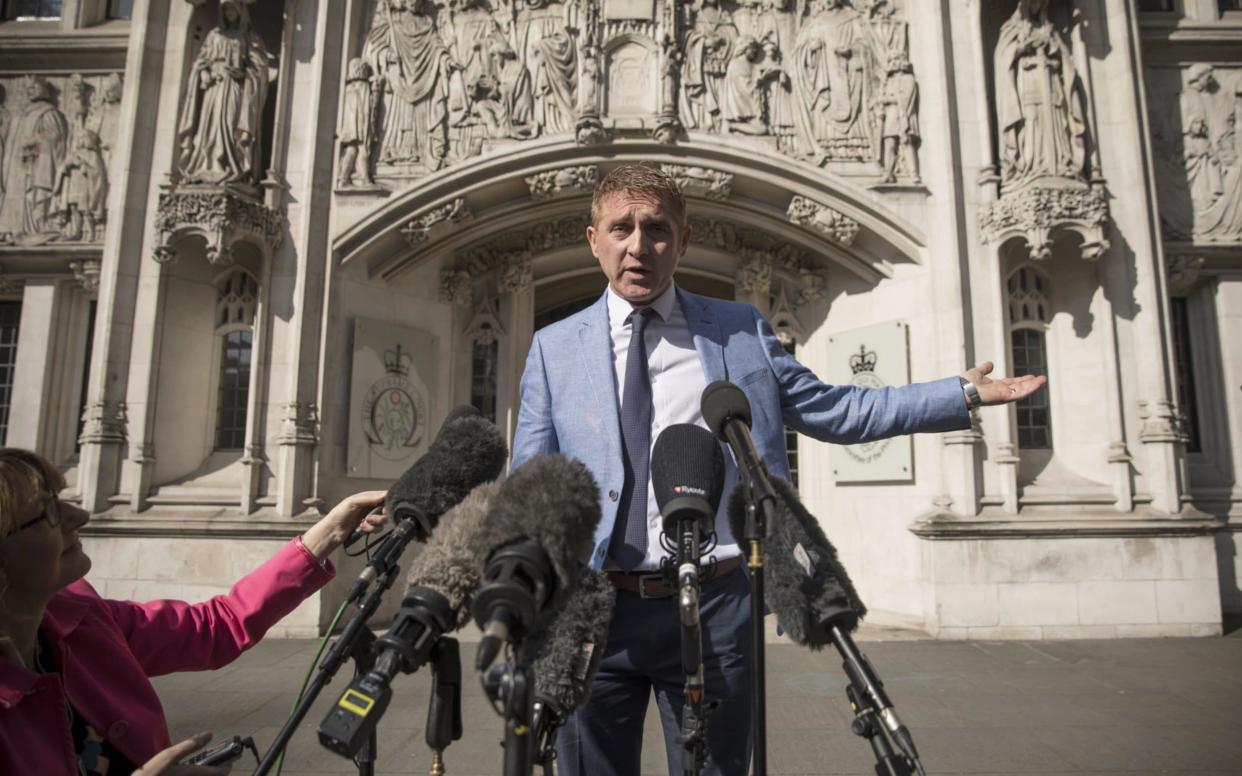Parents who took advantage of cheaper term-time fares prior to Supreme Court ruling could now be prosecuted

Parents who took advantage of a favourable court judgment in order to book family holidays during term time now face fines and a criminal conviction after a landmark legal ruling.
The Supreme Court said yesterday that parents could not remove children from school to take advantage of cheaper fares and hotels outside of the peak holiday season.
The judgment overturned earlier court victories in favour of Jon Platt, a businessman from the Isle of Wight, who had refused to pay a £120 fine for taking his six-year-old daughter to Disney World in Florida in 2015.
Thousands of parents are thought to have booked cheaper holidays during term time following Mr Platt’s earlier victories. One travel agency had claimed an 88 per cent rise in family holiday bookings during term time in May 2016 - after the High Court initially ruled in favour of Mr Platt.
Almost 20,000 parents were prosecuted in 2015 for taking children out of school without authorisation. It is not clear how many parents - although it is likely many thousands - will have seized upon Mr Platt’s earlier court victories to follow suit.
One parent last night claimed on Facebook she had been told by a travel agent last year to proceed with a term-time booking because councils "no longer fine for it".
The ruling by the Supreme Court - the highest court in the land - means those parents who booked unauthorised holidays from last May onwards can now be fined and prosecuted. The Department for education (DfE) had been advising schools to wait for the Supreme Court ruling before deciding what action to take against parents.
A DfE spokesman said: “We are pleased the Supreme Court unanimously agreed with our position – that no child should be taken out of school without good reason.
“As before, headteachers have the ability to decide when exceptional circumstances allow for a child to be absent but today’s ruling removes the uncertainty for schools and local authorities that was created by the previous judgment.”
Isle of Wight Council, which had taken the case to the Supreme Court, said it would now press ahead with its existing "code of conduct".
A council spokesman said: “The Supreme Court’s judgment provides much needed clarity about what constitutes regular attendance at school, to schools, parents and local education authorities.
“The Isle of Wight Council will ensure it continues to apply its code of conduct in relation to school absence and in accordance with this judgment.”
Delivering their verdict, the judges ruled that Mr Platt should have paid a £120 fine for his daughter’s unauthorised absence.
Lady Justice Hale, the Supreme Court’s deputy president, said Mr Platt had shown a “blatant disregard of school rules” and that his approach had been a “slap in the face” to “obedient” parents who abide by the law.
Speaking in Parliament Square after the ruling, Mr Platt apologised to his wife for his stubbornness, adding that he was “not at all surprised” by the verdict.
But he insisted the decision was “outrageous” and “shocking”, and warned parents with outstanding fines to pay them or face “ending up here in two years time”.
He added: “I really hope people have paid them... because this ruling makes it very difficult to win the case.”
Mr Platt now faces legal costs of more than £10,000 and could be fined a maximum penalty of £1,000 when the case is reexamined at the Isle of Wight Magistrates’ Court later this year.
Mr Platt, 46, has been providing guidance to other parents facing prosecution during his landmark legal battle.
His company’s website had claimed in advice to parents there “is a very good chance” that local authorities will “withdraw” fines if your child’s attendance is over 92.3 percent.
The Department for Education had tightened the rules in 2013 in response to the rising numbers of parents taking their children out of school during term-time in order to avoid the surge in peak holiday season prices.
It followed a pledge by the then Education Secretary Michael Gove to curb the scale of unauthorised absences in primary schools - which were then twice as high as secondaries.
Mr Gove said yesterday: “I’m delighted the Supreme Court has upheld the law as it stands.”
Parents on Facebook said they would still defy the Supreme Court ruling. One parent wrote: “I’d still take my children out in term time. Be cheaper to pay fine for two children than go in half term holidays.”
Another said the cost of a holiday at Easter was £1,800 more than taking the same trip in term time - and that it was a "no brainer" to carry on with the unauthorised absence despite being told by the school she would be fined.
Should parents be allowed to take their children on term time holidays?

